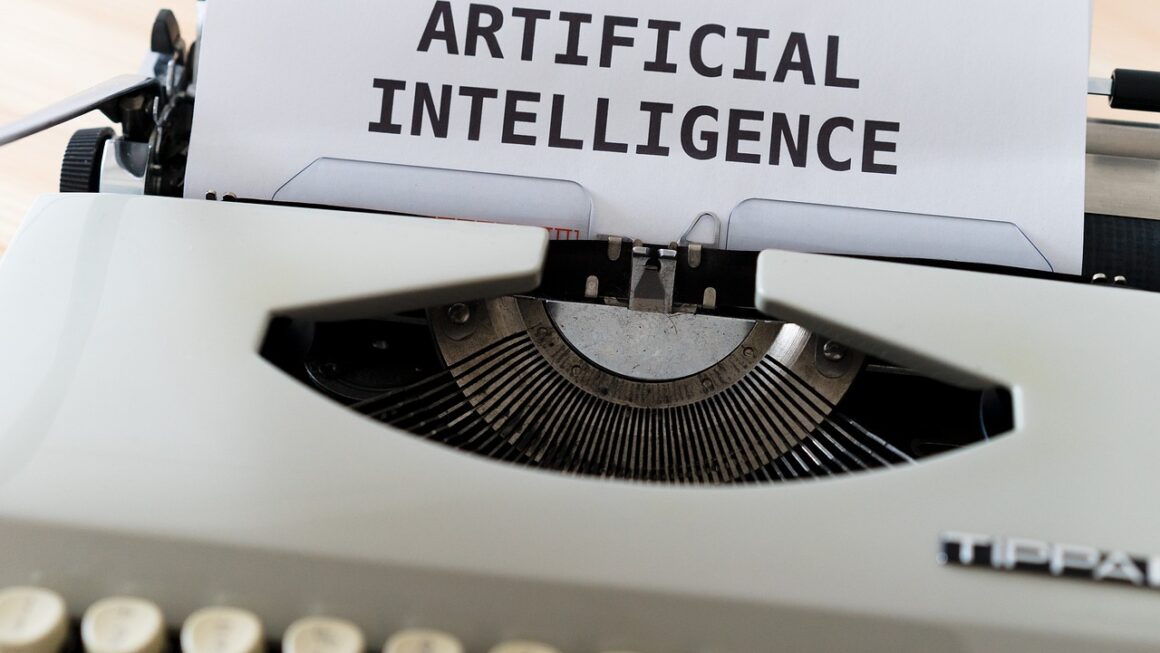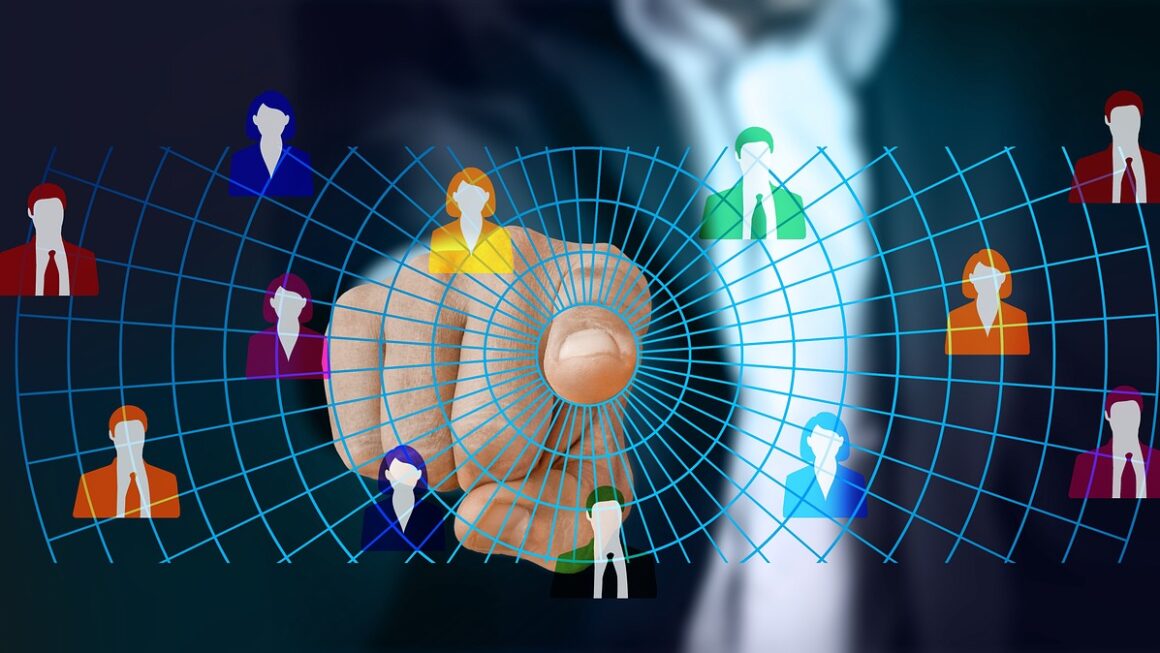The world of content creation is undergoing a seismic shift, driven by the rapid advancements in Artificial Intelligence. From crafting compelling blog posts to generating engaging social media content, AI tools are transforming how we create, optimize, and distribute information. This article explores the current state of AI in content creation, delving into its capabilities, benefits, and potential impact on the future of content marketing.
The Rise of AI-Powered Content Creation
What is AI Content Creation?
AI content creation refers to the use of artificial intelligence technologies to generate various forms of content, including text, images, audio, and video. These AI tools leverage machine learning algorithms, natural language processing (NLP), and other AI techniques to automate and augment the content creation process.
- Natural Language Processing (NLP): Enables AI to understand, interpret, and generate human language.
- Machine Learning (ML): Allows AI systems to learn from data and improve their content generation capabilities over time.
- Generative Adversarial Networks (GANs): Used to create realistic images, videos, and other multimedia content.
Current Capabilities of AI in Content Creation
AI tools can now perform a wide range of content creation tasks, including:
- Generating blog posts and articles: AI can write entire blog posts on specified topics, researching information and structuring content logically.
- Creating social media content: AI can generate engaging captions, tweets, and posts for various social media platforms.
- Writing product descriptions: AI can craft compelling product descriptions that highlight key features and benefits.
- Generating marketing copy: AI can create ad copy, email subject lines, and other marketing materials.
- Summarizing text: AI can condense lengthy articles or documents into concise summaries.
- Creating images and videos: AI can generate original images and videos based on text prompts.
- Example: Imagine you need to write a blog post about “The Benefits of Remote Work.” An AI content generator can create an initial draft based on this prompt, outlining the advantages such as increased flexibility, improved work-life balance, and reduced commuting time.
Benefits of Using AI in Content Creation
Increased Efficiency and Productivity
AI tools can significantly speed up the content creation process, allowing content creators to produce more content in less time.
- Automation: AI automates repetitive tasks, such as researching information and outlining content.
- Faster content generation: AI can generate content much faster than humans, freeing up time for other tasks.
- Scalability: AI allows businesses to scale their content creation efforts without hiring additional staff.
Improved Content Quality and Consistency
AI can help ensure that content is well-written, accurate, and consistent with brand guidelines.
- Grammar and spelling checks: AI can automatically correct grammatical errors and spelling mistakes.
- Fact-checking: AI can verify the accuracy of information and identify potential inaccuracies.
- Tone and style consistency: AI can ensure that content maintains a consistent tone and style across all platforms.
Enhanced SEO Performance
AI can help optimize content for search engines, improving its visibility and ranking.
- Keyword research: AI can identify relevant keywords and phrases to include in content.
- SEO optimization: AI can optimize content for specific keywords, improving its search engine ranking.
- Content personalization: AI can personalize content for individual users, improving engagement and conversions.
- Practical Example: AI tools can analyze competitor content to identify high-performing keywords and phrases, helping you create content that ranks higher in search results. They can also suggest relevant internal and external links to improve your website’s SEO.
Challenges and Limitations of AI in Content Creation
Lack of Creativity and Originality
While AI can generate content quickly and efficiently, it often lacks the creativity and originality of human writers.
- Repetitive content: AI-generated content can sometimes be repetitive or formulaic.
- Lack of emotional intelligence: AI may struggle to convey complex emotions or nuanced perspectives.
- Inability to think critically: AI may not be able to identify and address complex issues or challenges.
Accuracy and Reliability Concerns
AI-generated content can sometimes contain inaccuracies or errors, requiring careful review and editing.
- Hallucinations: AI can sometimes generate false or misleading information.
- Bias: AI models can be biased based on the data they were trained on.
- Lack of context: AI may not always understand the context of a situation, leading to inaccurate or inappropriate content.
Ethical Considerations
The use of AI in content creation raises several ethical concerns, including:
- Plagiarism: AI-generated content can sometimes be unintentionally plagiarized from other sources.
- Misinformation: AI can be used to generate and spread misinformation or propaganda.
- Job displacement: The widespread use of AI could lead to job losses in the content creation industry.
- Actionable Takeaway: Always review and edit AI-generated content carefully to ensure its accuracy, originality, and ethical compliance. Human oversight is crucial to avoid potential pitfalls.
The Future of AI in Content Creation
Advancements in AI Technology
AI technology is constantly evolving, with new advancements being made every day.
- Improved NLP: Advances in NLP will allow AI to understand and generate human language with greater accuracy and nuance.
- More sophisticated machine learning: More sophisticated machine learning algorithms will allow AI to learn from data more effectively and improve its content generation capabilities.
- Integration with other technologies: AI will be increasingly integrated with other technologies, such as virtual reality (VR) and augmented reality (AR), to create immersive and interactive content experiences.
The Role of Human Content Creators
While AI will continue to play an increasingly important role in content creation, human content creators will still be essential.
- Creativity and innovation: Human content creators will be responsible for generating original ideas and concepts.
- Critical thinking: Human content creators will be needed to evaluate and edit AI-generated content, ensuring its accuracy and quality.
- Emotional intelligence: Human content creators will be needed to connect with audiences on an emotional level and create content that resonates with them.
Emerging Trends in AI Content Creation
- AI-powered video creation: AI tools are now capable of generating entire videos from text prompts or existing footage.
- AI-driven podcasting: AI can be used to create and edit podcasts, including generating scripts, music, and sound effects.
- Personalized content experiences: AI is being used to personalize content experiences for individual users, delivering the right content to the right person at the right time.
- Example: AI is already being used to create personalized newsfeeds that show users the stories they are most likely to be interested in. In the future, AI could be used to create entirely personalized content experiences tailored to individual preferences and needs.
Conclusion
AI is revolutionizing the content creation landscape, offering unprecedented opportunities to improve efficiency, quality, and SEO performance. While challenges and limitations remain, the future of content creation is undoubtedly intertwined with AI. By understanding the capabilities and limitations of AI, content creators can leverage these tools to enhance their work and create more engaging and effective content. Embracing a collaborative approach, where AI assists and augments human creativity, is the key to unlocking the full potential of AI in content creation.




